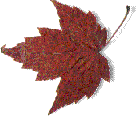"Learn about pines from the pine, and about bamboo from the bamboo." ~ Matsuo Basho
Poet Matsuo Basho, ("banana plant", 1644-1694), the son of a low-ranking samurai, created the modern haiku form and is considered to be one of Japan's greatest literary figures.
"Seek not to follow in the footsteps of men of old; seek what they sought," he once said.
An adherent follower of Zen Buddhism, Basho's book of his travels The Narrow Road to the Deep North (1689), captured prose and haiku. "Long conversations beside blooming irises/joys of life on the road," he wrote.
 The haiku poet or "haijin" described nature and life simply, with lightness, to create profound expressive poetic form. Basho's poetry brought spirituality and richness to haiku unheard of before his time.
The haiku poet or "haijin" described nature and life simply, with lightness, to create profound expressive poetic form. Basho's poetry brought spirituality and richness to haiku unheard of before his time.
According to Japanese critic and scholar Makoto Ueda, "ideas on verse writing Basho insisted upon" were sabi (loneliness), shiori (pity), hosomi (slenderness), inspiration, fragrance, reverberation, reflection, and lightness. Creation of art comes from meditation and is a sacred form of expression.
Haiku are short, unrhymed poems, usually no more than 17 syllables, often arranged in lines of 5-7-5 syllables, and include a word suggestive of a season. About writing haiku, Basho advised, "You must become one with the object in order for your poetry to be true."
More Poets

